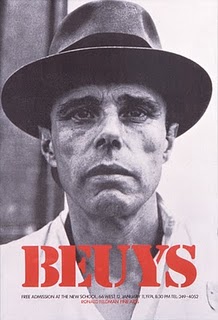Tunisia: artists step into the light
The Dignity Revolution has resulted in an opening of the arts scene in Tunisia as the harsh restrictions on importing books and films came  to an end on 22 January. Bookshops no longer need to covertly smuggle publications into the country, and are taking orders for books on issues as previously controversial as La Régente de Carthage, on the president’s wife’s corruption.
to an end on 22 January. Bookshops no longer need to covertly smuggle publications into the country, and are taking orders for books on issues as previously controversial as La Régente de Carthage, on the president’s wife’s corruption.
Tunisian artists who had only been able to publish anonymously on the internet, such as rapper Hamada Ben Amor, aka The General, are now able to openly practice their art in public. Amor, who became famous for a song about corruption, ‘President, your people are dead’, was arrested on 5 January for several days during the revolution.
Pakistan: Arts Council bans dancing
The Lahore Arts Council has banned all dance performances in theatres with the exception of classical dance. According to Pakistan’s Express Tribune, the Council made the decision in order to promote “quality” theatre. In Pakistan, scripts have to be approved first by the city’s arts council, then by the regional arts council and finally by the central Home Department.
Unfortunately, rather than reject the ban outright, Commercial Theatre Producers Association chairman, Chaudhary Zulfiqar Ahmad, has instead called for the creators of such “vulgar” dances to be barred from producing more.
Heera Mandi, the famous dancing women in Lahore, have also been forced to stop their classical dancing as the police claim they can no longer provide security against attacks by violent conservative groups. The women, who, according to ActionAid, are often mistakenly believed to work in the sex trade, dance and sing usually for male clientele. Most music festivals, theatres performances and other artistic celebrations that Lahore was once known for, have ended.
United Arab Emirates: festival denies claims of censorship
The Sharjah Art Foundation has denied claims of “unwarranted censorship” after it dropped controversial documentary by American-Iranian film director Caveh Zahed, according to a report in The National.
The film, Plot for a Biennal, was set to screen at the festival in mid-March but was banned because the foundation’s lawyers believed it might promote blasphemy. One scene showed children dancing and throwing their shoes in the air, overdubbed with the call to prayer. Another showed the children kneeling for prayer to the sound of a Bollywood song.
Jack Persekian, the foundation director, supported the decision to drop the film, claiming “scenes juxtaposing shots of children with an inappropriate soundtrack would offend Muslims”. Zahed countered the claims and argued that the foundation’s decision was a violation of artistic freedom.
In addition, according to reports in the New York Times, Sheik Sultan bin Muhammad al-Qasimi, the ruler of the emirate Sharjah, has ordered Persekin, to be fired. The orders came as a result of numerous complaints about the artwork, “It Has No Importance” by Mustapha Benfodil, displayed in a public square. The work featured a group of headless mannequins with sexually explicit “Arabic slogans and poetry, some making reference to Allah”.
The curators who chose the work defended Persekian, who was not involved in the selection of the piece and denied it was meant to offend. They told the New York Times the words in the work “borrowed the voice of the victims of rape at the hands of religious extremists in Algeria (…) who used religious texts to justify their crime.”
Germany: performance photography banned
A court in Germany has ruled that a display of performance photos  in Museum Schloss Moyland was “an incorrect deformation of the original performance”. According to a report by The Art Newspaper, the court ruled in favour of the widow of performance artist, Joseph Beuys, who claimed that the original piece, which was staged during a television show, should not be represented through photos.
in Museum Schloss Moyland was “an incorrect deformation of the original performance”. According to a report by The Art Newspaper, the court ruled in favour of the widow of performance artist, Joseph Beuys, who claimed that the original piece, which was staged during a television show, should not be represented through photos.
However, photographer Manfred Tischer’s images remain the only visual record. The museum’s director, Bettina Paust, argued that the decision “abolishes the medium of ‘performance photography’ as now every photograph of a happening is a ‘deformation of the original’.”
Spain: YouTube censors art depicting young Europeans enjoying life
YouTube deleted a documentary in February about the Spanish artist Juan Francisco Casas saying that it “violated company policy relating to nudity and sexual content”. The film, entitled “10 things about Juan Francisco Casas”, showed screen shots of Casas’ work, some of which depicted young adults being partially naked. Casas declared that his work reflects a carefree and hedonistic European generation that “thrives on organising parties and exploring their sexuality”.
United Kingdom: Wrexham Council bans ‘sensitive’ Cameron-Clegg artwork
Wrexham Council has decided to ban a print of UK Prime Minister David Cameron and Deputy-Prime Minister Nick Clegg dressed as partially naked cowboys amid concerns it is “politically sensitive”, says a report by the BBC. The print, set to be featured at the Oriel Wrecsam gallery at the end of March, was deemed to be “inappropriate”.
The council said the decision was made as they had to “follow strict guidelines prior to an election”, which take place on May 5th 2011. The artist, Brian Jones, responded to the gallery’s decision by claiming they were practicing censorship. “It’s not party political, I’m not on a mission to topple the government, it’s just the backdrop to what’s going on with job losses, prices going up and cuts,” Jones told the BBC.
China: Ai Weiwei still detained despite protests by international community
China’s leading artist-activist remains in the custody of the government despite pressure from the international community t o release him. The Chinese government detained Ai and have since alleged the arrest was based on ‘economic crimes’.
o release him. The Chinese government detained Ai and have since alleged the arrest was based on ‘economic crimes’.
Both the United States and the European Union have raised concerns over the detention of Ai, claiming his arrest came as a response to the artist’s criticism toward the Chinese government’s violation of human rights. In particular, Ai said that the government used the 2008 Olympic games as “propaganda” and he blasted the country’s “disgusting political conditions”. The Chinese foreign ministry claimed that his arrest “had nothing to do with human rights or freedom of expression”.
United States: homosexuality censored and un-censored
A United States supermarket, Harps, covered with a ‘family shield’ a magazine showing a picture of Elton John and his husband with their newborn child.
Following complaints from shoppers, a Harps store manager deemed the picture to be “offensive” and put a protective shield on it to stop customers from looking through the magazine in January. Harps representatives defended their decision, claiming that the decision was in response to the complaints of the customers and did not reflect the point of view of the store. After receiving scrutiny from international organisations, the store management reversed their decisions and uncensored the magazine.
Fred Zinnemann’s 1953 film about soldiers in Pearl Harbour, From Here to Eternity will be reissued digitally in May. The re-release will feature the gay scenes in James Jones’ 1951 novel which had been originally edited out of the film. One scene includes Private Angelo Maggio – played by singer Frank Sinatra – who reveals that he is paid to have oral sex with another man. The film also covers a military investigation into a case of homosexuality.
Related articles:
China: a new wave of crackdown on dissidents?
Volatile developments in Middle East
January: arrested writers, journalists, bloggers in Iran, Tunisia, Yemen and Belarus
The Nobel peace Prize to Liu Xiaobo highlights the fight for democracy


